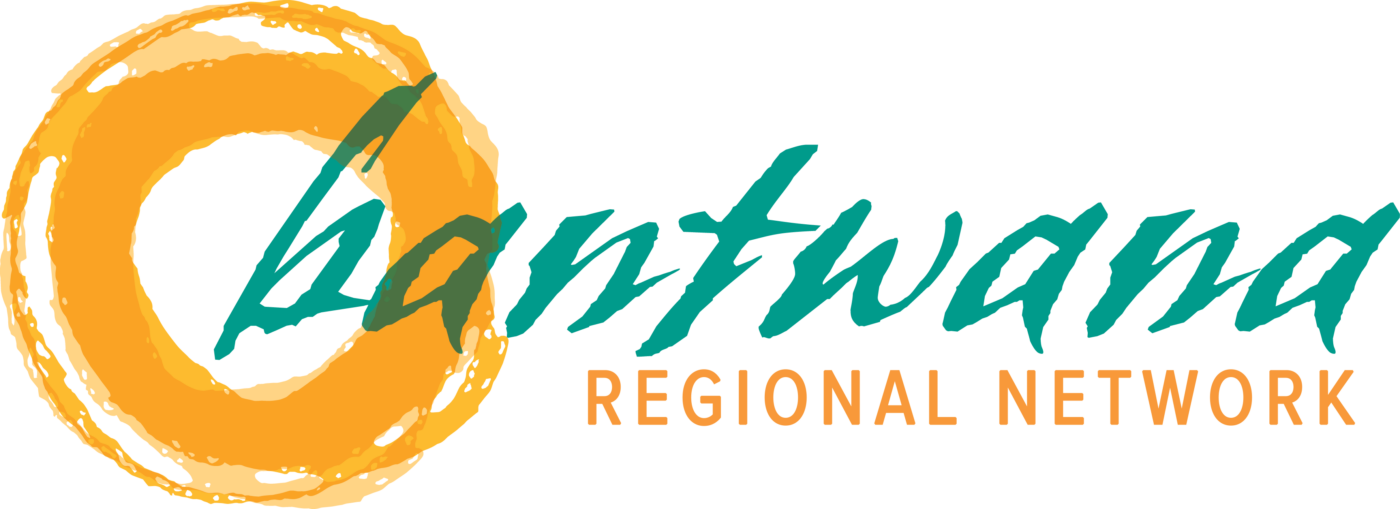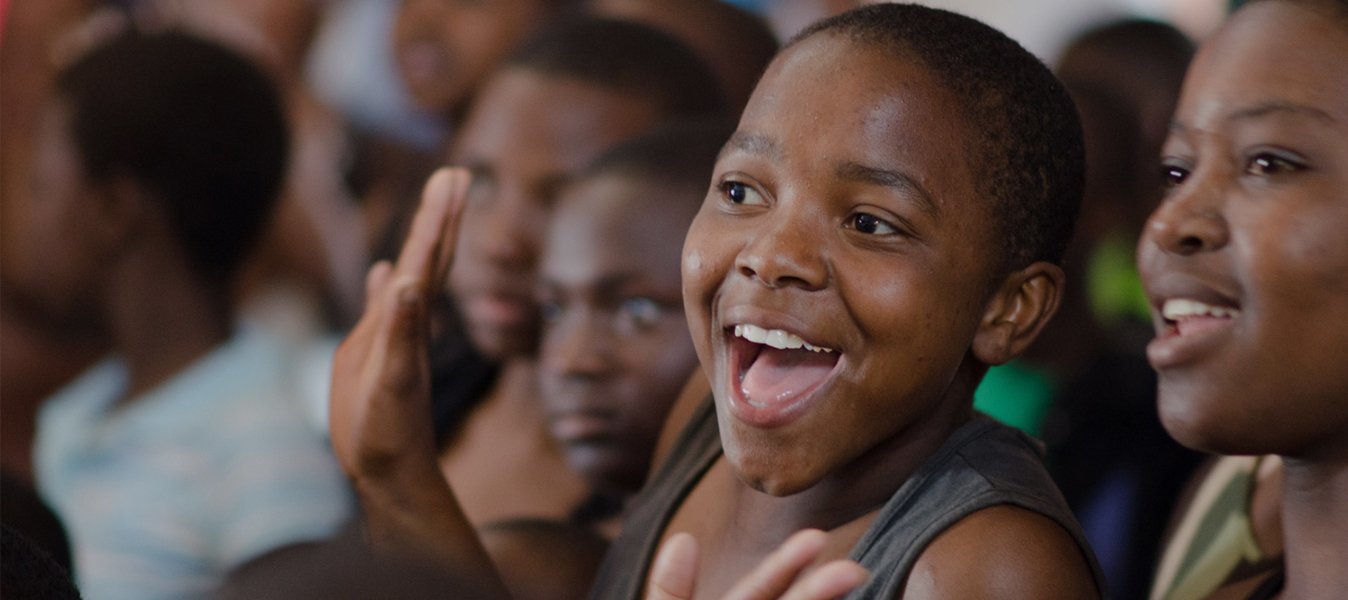
Transforming Trauma into Teachable Opportunities
Research shows that mentoring programs are an effective tool for empowering adolescent girls and young women. Mentor-mentee relationships provide safe spaces for girls and young women to begin to develop the skills, resources, and social and economic capital needed to reach their full potential and are particularly effective at developing social networks and self-esteem. Mentoring is, therefore, one of our key strategies for supporting and linking adolescent girls and young women in their communities to much-needed services including HIV and gender-based violence prevention and response.
We have established mentoring programs in Mozambique under the Força à Crianças e Comunidade (Child and Community Strengthening) project (FCC). Mentoring is a part of our DREAMS programming, the goal of which is to support a generation of young girls and women in becoming “Determined, Resilient, Empowered, AIDS-free, Mentored, and Safe.” In honor of the work our dedicated mentors are doing, we wanted to share the stories of three incredible young women who began as beneficiaries and, through the support of their mentors, have become mentors themselves.
Hawambo, Olinda, and Katya were originally identified by one of our local partners, the Associação Moçambicana Mulher e Educação (AMME), who enrolled them in our DREAMS mentoring program. Since their early childhood, Hawambo, Olinda, and Katya have experienced much of the adversity that life in one of the poorest provinces in one of the poorest countries in the world can bring: hunger and malnutrition, limited access to education, gender-based violence, alcohol and drug abuse, sexual exploitation, premature pregnancy, and exposure to HIV and sexually transmitted infections, as well as other public health risks.
Today, these three young women have become trained DREAMS mentors themselves. They are proudly and successfully supporting and counseling adolescent girls and young women in their communities who face many of the same privations and challenges. Thanks to their innate determination, coupled with the skills and assistance they have obtained through our support, Hawambo, Olinda, and Katya are living with a newfound sense of possibility and confidence, and are inspiring other young women to do the same. These are their stories.
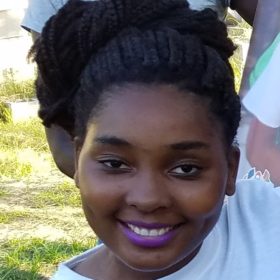
Hawambo
From traumatized orphan to respected mentor: Bright-eyed, sparkly, and talkative, Hawambo’s personality doesn’t betray any hints of the immense challenges she’s encountered in her young life. Not unlike other children who have lost one or both parents, Hawambo began to act out her fears and frustrations in ways that put her at grave risk as a teenager.
After being trained as a DREAMS Mentor and counselor for adolescent girls, Hawambo has been able to identify and talk about the struggles she faced as a child. Her father died when she was an infant, her mother passed away when she was only 15, and then Hawambo dropped out of school. She felt lost: “Before my participation in this program, I was feeling traumatized. I became aggressive and would roam the streets,” Hawambo said, reflecting on that time.
When the director of a local school approached Hawambo about continuing her education again, the teenager was not initially interested. Then she learned about the Girls’ Empowerment Club that AMME was running at the school. The club piqued her interest, and she began first to attend Girls’ Empowerment Club meetings, and then returned to school.
“I started to learn about my rights and what I can do with an education,” Hawambo explained. “I began to change my behavior and became more and more active in the club, talking about the important health and life issues and encouraging others.”
As a result of her continued participation in the club, her strong desire to learn, and her encouragement of her peers, AMME invited Hawambo to train to become a DREAMS Mentor. Hawambo is now an active mentor; the stipend that comes with it enables her to support herself.
Where she is now: “Today, I feel so good! I love working with my colleagues and mentoring others, so I can pass on my experience. I don’t have any family supporting me in this work. It is my decision to do it!”– Hawambo
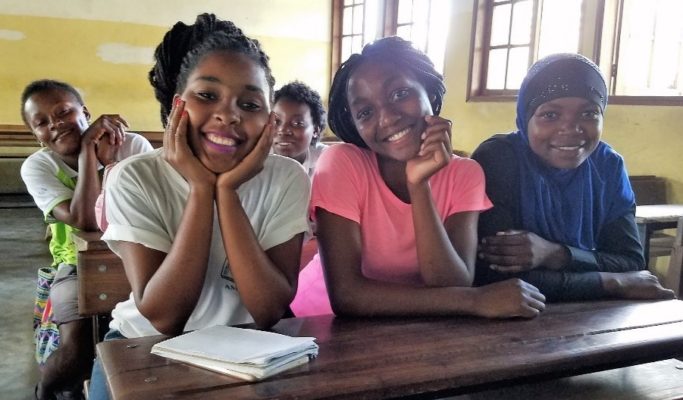
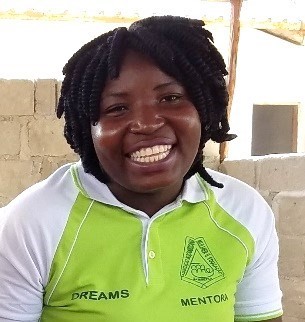
Olinda
From teen-mom to supported, responsible mentor: Olinda was a teenager in a poverty-stricken household. “I was in a situation where I was discovering myself, so I used to fool around and do bad things,” as she described that period of time before she became pregnant.
“I did not understand my role as a mother,” she reflected. “I only gave the baby milk, while my older sister was the actual mother. When my sister passed away, I realized I had to take care of my own children and to earn an income to support the family. But I did not know how I would do that.”
Fortunately, Olinda joined an FCC-sponsored Voluntary Savings and Loan Association (VSLA) in her community, supported by AMME. As AMME project staff mentored her, they quickly realized Olinda would make an excellent mentor for other DREAMS participants. When she began working as a DREAMS Mentor, Olinda took a loan from the VSLA to start a small business selling bhajias (savory fried snacks). Olinda remembers that “the stipend I received from being a mentor helped me to pay my daily expenses, while I was waiting for the income from the business to grow.”
Where she is now: “I have become stronger through DREAMS both as a beneficiary and as a mentor, and I use my life as an example for others. The message that I want to pass on is this: Yes, today your life may be bad. But you have to be strong and prepare for your future. I was in a bad situation— I was an orphan and teen mom, but today I am working and running a business. And I am the head of my household.” – Olinda
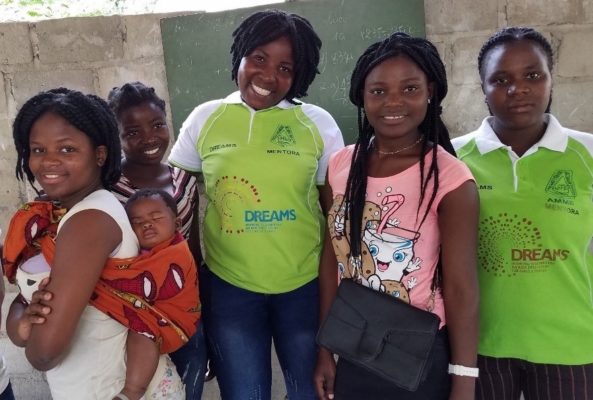
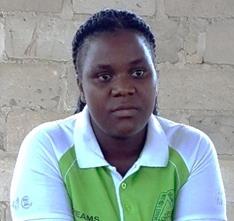
Katya
From scared high school dropout to empowered mentor: Katya, a quiet and serious young woman who had dropped out of school, experienced her lowest point right when she learned she was HIV positive through her participation in the DREAMS program.
When her mentor from AMME recommended that she get tested, Katya was too scared. The idea of treatment seemed out of reach and the sense of stigma and shame would be too much to bear.
“I was terrified,” she remembered. “I thought it would be better to die than to know that I have HIV. But with DREAMS Mentoring, I got more information, and so then I did the [HIV] test, and now I know my status, and I share information with my friends.”
Katya’s DREAMS mentor helped her to accept her status and worked with her to become comfortable sharing her story with others. Katya received an education subsidy from FCC for uniforms and supplies, and she finally returned to school after a gap of five years.
Where she is now: At school, her maturity and gentle manner made her a standout candidate to become a student DREAMS mentor. She is now leading Girls’ Empowerment Clubs and mentoring a number of girls in her community. Reflecting on the power of the Girls Empowerment Club, said, “It is a safe space, where I can share information as a mentor with my friends and we all learn to survive better in the community.” Katya is extremely grateful to be back at school and is making up for lost time.
These stories all demonstrate the transformative power of mentorship.
Hawambo, Olinda, and Katya are all remarkable young women whose connections with role models enabled them to learn from their experiences and empowered them to become role models themselves for the next generation of girls.
